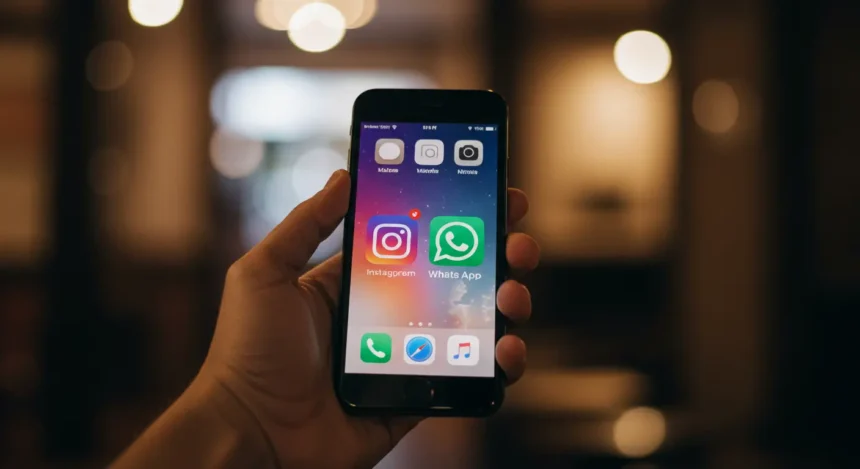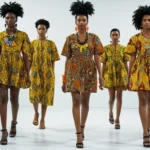This is the story of how Gen Zees in Nigeria are redefining the concept of hustle and small business branding with a shoe-string budget.
In an age of skyrocketing rent, rising unemployment, and a depreciating naira, a new kind of hustle is thriving quietly in Nigeria’s digital backstreets. With just ₦10,000 and a smartphone, Gen Z entrepreneurs are launching micro-brands on Instagram and WhatsApp, carving out profitable niches in fashion, skincare, food, and digital services. Welcome to the “₦10K Ad Hustle” – the new digital economy of lean, street-smart entrepreneurship.
The ₦5K Formula: Hustle, Hashtags, and Hyperlocal Ads
Ask 23-year-old Tochi Abara how she started her online thrift fashion business, and she chuckles: “All I had was ₦10,000 and a dream. I used ₦6,000 for photo shoots with a friend’s iPhone and ₦4,000 for Instagram promotion targeting Lagos. My first sales came in two hours.”
Tochi now sells curated thrift wear, known locally as “Okrika Select,” and makes about ₦80,000 monthly in net profit – all without a physical store. Her business operates 100% on Instagram and WhatsApp. She is not alone. Across Nigeria, thousands of Gen Z creatives are learning to leverage Instagram’s affordable ad tools and WhatsApp’s intimacy to build low-budget, high-impact digital storefronts.
Why Instagram and WhatsApp?
According to DataReportal’s 2024 Nigeria Digital Report, Instagram has over 13 million active users in Nigeria, with over 60% under the age of 30. WhatsApp tops the chart with 33 million active users, making it the most-used communication platform in the country. “Instagram gives young Nigerians the ‘storefront’ they can’t afford in the real world,” says Abiola Adeyemi, a Lagos-based digital marketing strategist. “WhatsApp, on the other hand, helps them close deals quickly through trust-building, voice notes, and payment confirmations.”
The affordability of Instagram’s location-based ad targeting means ₦10,000 can go a long way in a hyper-targeted campaign within a specific Lagos district or university campus.
Digital Native, Digitally Made
For Gen Z, who grew up swiping before they could spell “curriculum vitae,” social media isn’t just entertainment – it’s economy. “I never printed a flyer or banner,” says Faith Omorodion, 22, who runs a homemade skincare brand called GlowByFaith. “My audience is girls like me who are on Instagram all the time. A good selfie, a customer testimonial, and ₦5K ad spend is my business model.”
Her process is simple:
- Design an Instagram post using Canva.
- Spend ₦2K to promote the post to women aged 18–28 in Abuja.
- Direct interested customers to WhatsApp.
- Close the deal, get proof of payment, and dispatch.
“I started with just three jars of face cream,” she adds. “Now, I’m struggling to meet orders.”
Business Experts Weigh In
“The ₦10K hustle reflects what we call the micropreneur revolution,” says Dr. Emmanuel Emeh, a human resources expert, business innovation researcher, and promoter of SWAT Academy – a youth-based leadership and empowerment organisation. “In the past, entrepreneurship required significant capital. Now, attention is capital. The ability to generate attention online is what fuels sales. ₦10K is just the ignition.”
He notes that platforms like WhatsApp Business have simplified CRM (Customer Relationship Management) for the street entrepreneur. “With tools like product catalogues, labels, and automated replies, WhatsApp Business functions like a mini-CRM system – no subscription needed.”
From Side Hustle to Brand
What begins as a “try-your-luck” hustle is becoming a full-blown brand for many.
Chioma Okafor, 25, started SnackDeyHere, a local snacks delivery service in Port Harcourt. Using Instagram and WhatsApp status updates alone, she built a loyal customer base among students and bankers. Today, she fulfills over 150 orders weekly.
Chioma emphasizes the importance of consistency:
“It’s not about looking perfect. It’s about showing up daily – posting new content, replying fast, and using people’s feedback as content.” She reinvests profits into better packaging, influencer reposts, and occasional paid ads of ₦5K to ₦10K.
The Role of Technology Tools
Free tools like Canva, InShot, CapCut, and ChatGPT have been critical enablers. “I use Canva for all my Instagram graphics and product mockups,” says Tobi. “Sometimes, I use AI tools to write better captions and respond to customer FAQs.”
Tope Awotona, a Nigerian-American tech entrepreneur and founder of scheduling app Calendly, recently remarked during a tech summit in Lagos: “The next big economy in Africa won’t come from oil, it’ll come from young digital entrepreneurs who understand how to use small tools to solve local problems.”
Challenges? Plenty. Solutions? More
No POS? Use a payment link from Paystack.
No delivery bike? Use GIG Logistics, Kwik, or Bolt Market.
No product? Start drop-shipping or digital services like logo design, ebook sales, or TikTok voiceovers.
But the hustle is not without stress.
“The biggest challenge is trust,” says Faith. “People think you’re a scam unless you have many followers or reviews. So I always ask for video reviews, and I post receipts.”
Cybersecurity and customer acquisition fatigue are also rising concerns. Some users report being banned by Instagram for violating ad policies they barely understand.
That’s where training and community come in.
“Young entrepreneurs should learn the rules of digital marketing,” advises Kenechukwu Edeh, a tech innovation trainer at BrandiQ Academy. “There are free courses on Facebook Blueprint, Google Digital Skills, and YouTube. With knowledge, ₦5K can multiply like magic.”
The Future is Nano
As Africa’s digital infrastructure expands, this hustle is only getting smarter. We’re seeing the rise of nano-influencers who charge as little as ₦3K to ₦10K for shout-outs. Microbrands are now hiring Gen Z content creators to run product reviews and viral skits. It’s a new world, where ₦5K isn’t just pocket money. It’s a brand launchpad.







